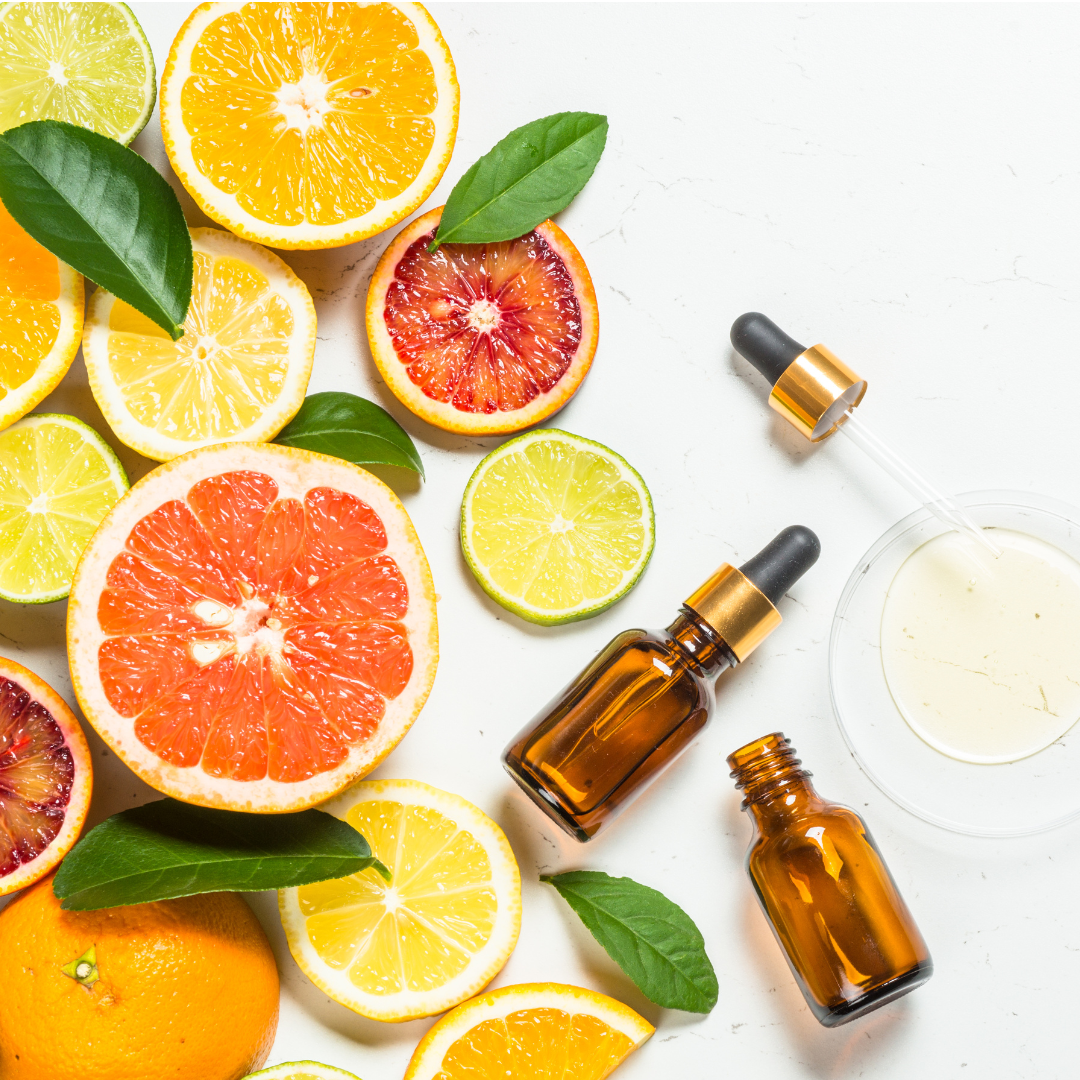
While Vitamin C is a fantastic skincare ingredient, it is known for being highly unstable. It oxidizes quickly and, in its pure form, can be irritating for some people. For these reasons, several Vitamin C derivatives are used in skincare. They include ascorbyl palmitate, 3-O-Ethyl Ascorbic Acid, sodium ascorbyl phosphate, tetrahexyldecyl ascorbate, retinyl ascorbate, Ascorbyl Glucoside, and magnesium ascorbyl phosphate. Since nothing good comes easy, these derivatives must be converted back to l-ascorbic acid on the skin to provide benefits. While the concentration of Vitamin C and its derivatives varies across formulations, research shows that formulations should have a pH of between 3.5 and 4. This report states, “from a clinical point of view, it is important to note that the efficacy of the Vit. C serum is proportional to the concentration, but only up to 20%.”
1. Vitamin C Boosts Collagen Production
Vitamin C encourages the cells within the skin’s connective tissue to boost collagen production. This helps your skin repair itself after being damaged by UV rays or acne breakouts. The result is firmer, more plump-looking skin with fewer fine lines and wrinkles.
2. Vitamin C Neutralizes Free Radicals
Free radicals are created when your body is exposed to UV radiation, polluted air, smoke, or even fighting off a cold. Free radicals are molecules that contain at least one unpaired electron. Not to get too sciency, but Since Vitamin C is an antioxidant, it gives up some of its electrons to neutralize the free radicals.
3. Vitamin C Helps Prevent Dry Skin
Dry skin occurs when there isn’t enough moisture or lipids in the skin. This report states that Vitamin C and its derivatives all improved skin moisture content after 4 weeks of daily use. However, only L-ascorbic acid reduced the amount of transepidermal water loss (TEWL.) All forms of Vitamin C will help boost skin moisture content, but pure vitamin C will help you retain more moisture.
4. Vitamin C Reverses Photoaging
Vitamin C can clinically reverse photoaging. This report states that “vitamin C must be non-esterified, acidic and optimally at 20% concentration” to reduce hyperpigmentation and wrinkles.
5. Vitamin C Paired with Sunscreen Provides More Protection
A broad-spectrum sunscreen protects against both UVA and UVB rays. However, according to this article, “sunscreens block only 55% of the free radicals produced by UV exposure.” Pairing your vitamin C with sunscreen allows the antioxidant to help neutralize the free radicals and prevent skin redness and/or burning.

